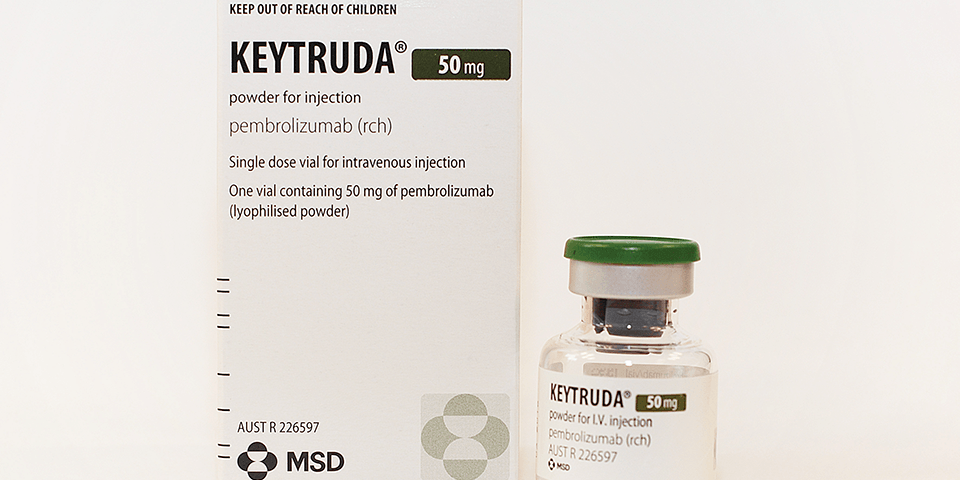Australians who have a cancer that displays a specific biomarker may be eligible for treatment with a medicine that activates the immune system to fight cancer cells.
A medicine to treat cancer based on the genetic profile of the tumour, rather than tumour type or location, has now been registered on the Australian Register of Therapeutic Goods.
This is claimed to mark the first ‘tumour agnostic’ approach to cancer treatment in Australia.
MSD has confirmed that Keytruda (pembrolizumab) can now be used to treat eligible patients whose cancer has a specific genetic alteration (a biomarker) known as deficient DNA-mismatch repair (dMMR) or microsatellite instability-high (MSI-H).
These patients must have advanced cancer that has progressed following previous treatment and have no satisfactory alternative treatment options.
Colorectal cancer is one form of cancer that can display the dMMR and/or MSI-H biomarker, and the new indication specifically identifies advanced colorectal cancer patients with this biomarker, whose disease has progressed following treatment with multiple therapies, as eligible for treatment.
This indication was approved under the provisional approval pathway, which provides a six-year window to collect further data to support the drug’s use in MSI-H cancer and to transition to a full registration.
It is estimated that there are more than 20 different tumours types that may display MSI-H and/or dMMR, which can be identified through laboratory tests.
These tumours include colorectal, endometrial, gastric, small intestinal, pancreatic, cholangiocarcinoma, adrenocortical, mesothelioma, small-cell lung, cervical, neuroendocrine, thyroid, urothelial, brain, ovarian, prostate, retroperitoneal, salivary, sarcoma, testicular and tonsillar cancers.
“This is the first tumour agnostic indication made available in Australia,” MSD Australia Managing Director Michael Azrak said. “It marks a shift in treating cancer according to the genetic type of the tumour as opposed to the tumour location.”






